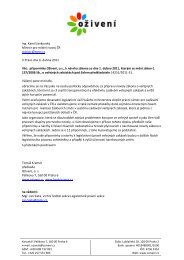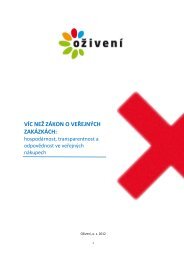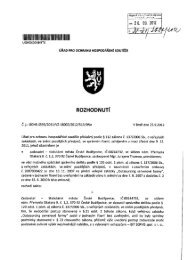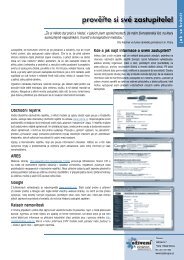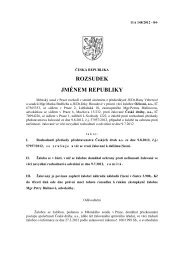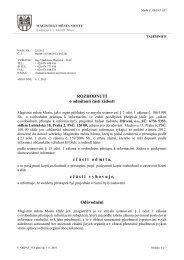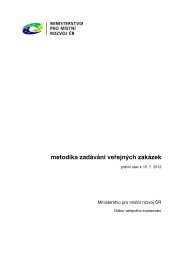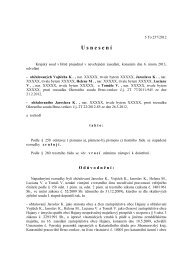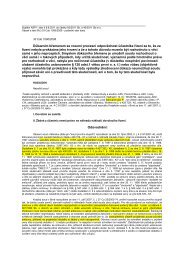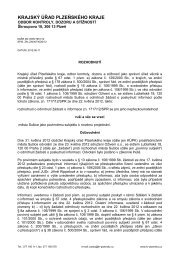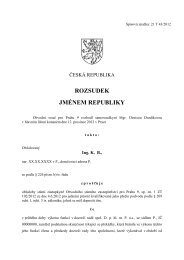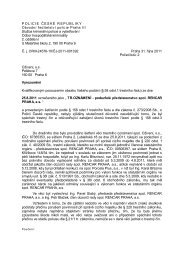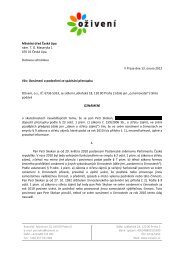Managing Conflict of Interest - Organisation for Economic Co ...
Managing Conflict of Interest - Organisation for Economic Co ...
Managing Conflict of Interest - Organisation for Economic Co ...
Create successful ePaper yourself
Turn your PDF publications into a flip-book with our unique Google optimized e-Paper software.
Keynote Addresses xxiii<strong>Co</strong>nvention Against <strong>Co</strong>rruption (UNCAC) was also part <strong>of</strong> the ActionPlan. I am pleased that in March last year the House <strong>of</strong> Representativesratified UNCAC. The ratification is a milestone <strong>for</strong> Indonesiaand it will require us to revise our current anti-corruption legislationto bring it in line with the requirements <strong>of</strong> the <strong>Co</strong>nvention.We also need to revise the Law on KPK on the basis <strong>of</strong> a rulingby the <strong>Co</strong>nstitutional <strong>Co</strong>urt requiring that the Anti-<strong>Co</strong>rruption <strong>Co</strong>urtbe established by a separate law and not, as today, by the Law onKPK, and that all corruption cases go to one court. The ongoingrevision <strong>of</strong> our anti-corruption legislation thus provides a window <strong>of</strong>opportunity to further strengthen and improve our anti-corruptionpolicies. I am pleased that, in recent years, law en<strong>for</strong>cement agenciesincluding KPK have made important achievements. KPK, <strong>for</strong>example, has established itself as a main vehicle <strong>for</strong> converting ourjoint endeavor to fight corruption into concrete actions with sustainableoutcomes. While KPK initially focused on punitive measures, itnow also focuses on its important preventive mandate given by theLaw on KPK and rein<strong>for</strong>ced by UNCAC.Ladies and gentlemen, it is clear that eradicating corruption isa complex and even sometimes dangerous duty. We in Indonesia,at some point, have felt this. At its initial stage, our anti-corruptionmeasures create fear, slow down development processes, and affectthe Government’s ability to deliver. The long-term challenge here isto build on and improve our quality <strong>of</strong> governance. To do this, weneed to focus on the continued re<strong>for</strong>m <strong>of</strong> Indonesia’s crosscuttinggovernment functions. These include areas such as public expenditure,revenue and asset management, and the regulatory process.Other important areas are the preparation <strong>of</strong> high-quality regulatoryinstruments and the effective implementation and en<strong>for</strong>cement <strong>of</strong>enacted legislation and better human resource and financial managementsystems <strong>for</strong> the civil service.We also need to continue intensifying our awareness-raisingcampaigns and civic education activities even in these early <strong>for</strong>mativeyears. We need to improve transparency to widen access <strong>for</strong> andenable the media to fulfill their important role in fighting corruption.And we need to implement the fundamentals and internationallyaccepted anti-corruption concepts and standards. It is true that wemust effectively build our own system against corruption and tirelesslyrefine our own anti-corruption policies. But we can learn fromcountries that have a positive record in fighting corruption.ADB/OECD Anti-<strong>Co</strong>rruption Initiative <strong>for</strong> Asia and the Pacific



